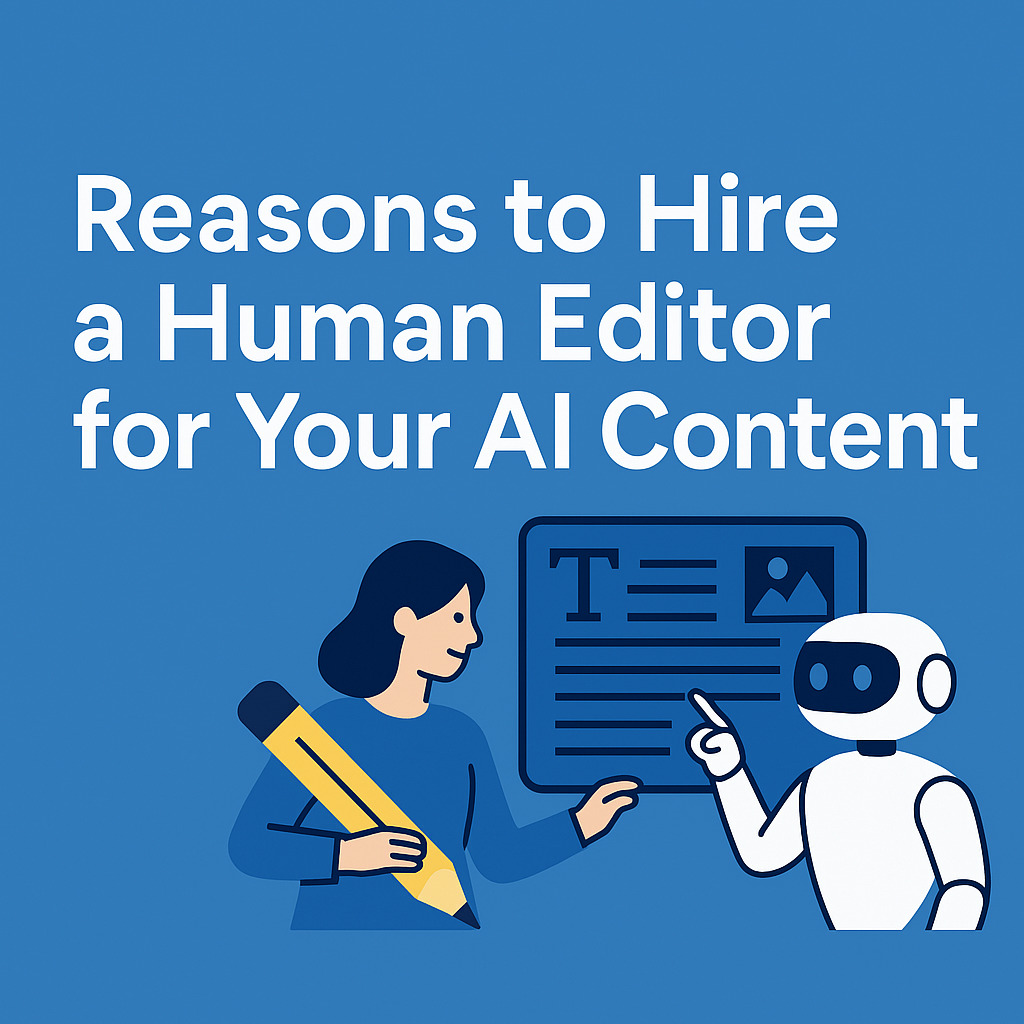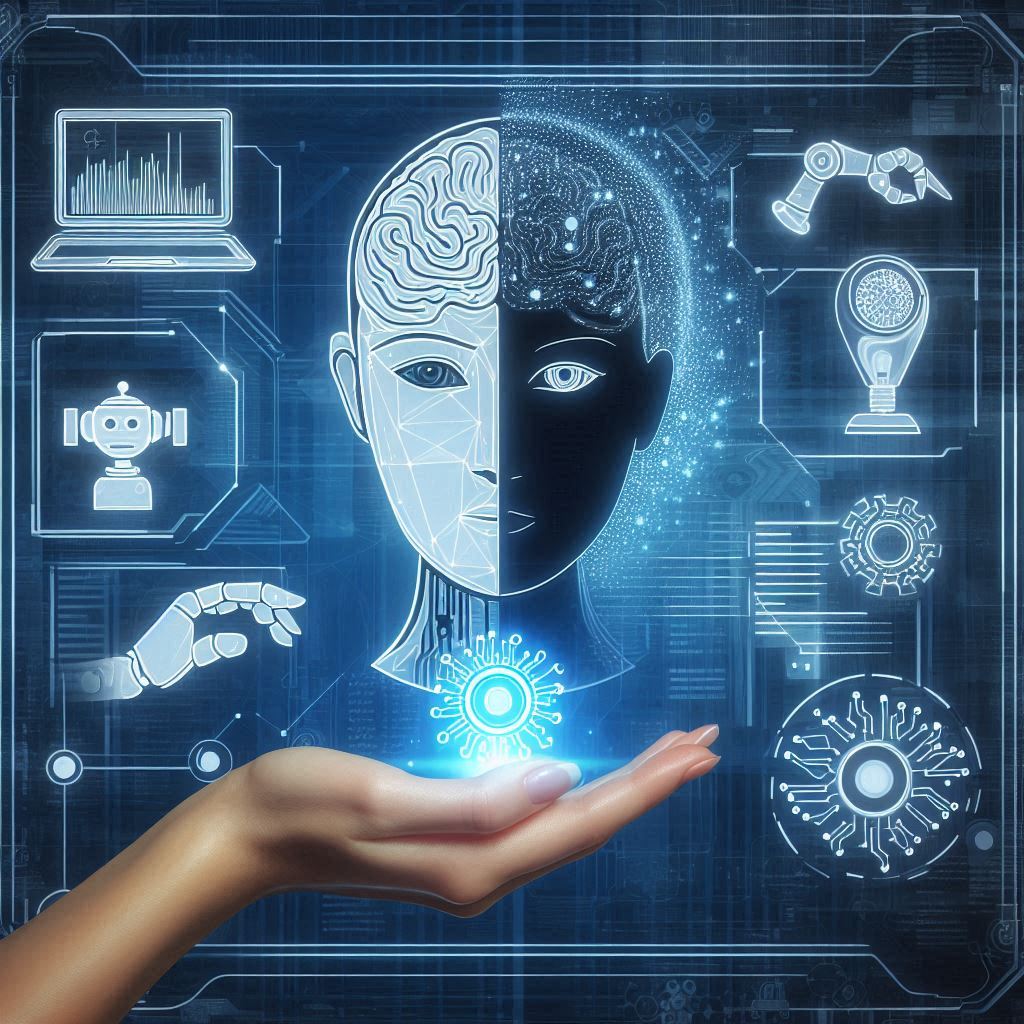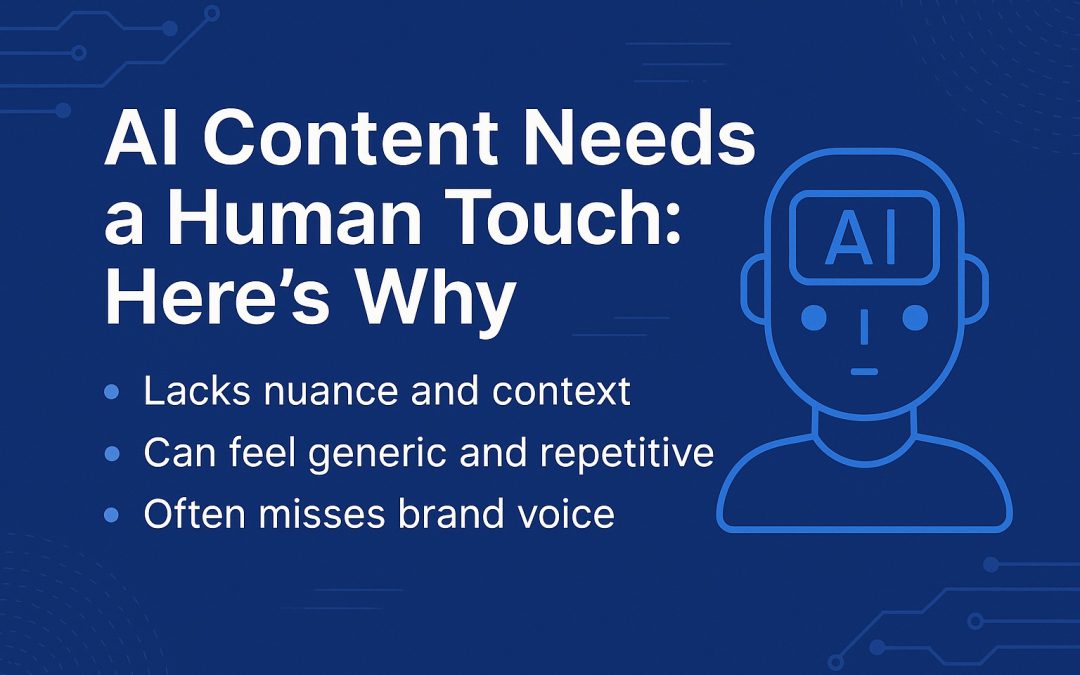The Rise of AI-Generated Content and Its Limitations
Artificial intelligence has revolutionised the way we create content. Businesses, marketers, and website owners can now generate blog posts, social media updates, and even entire articles in a matter of seconds. AI-powered writing tools like ChatGPT, Jasper, and Copy.ai have made it easier than ever to scale content production.
But while AI-generated content is fast and efficient, it often lacks something critical—the human touch.
AI can process vast amounts of data, predict language patterns, and create coherent sentences, but it struggles with nuance, emotional depth, and brand consistency. The result? AI-generated articles often feel robotic, generic, and disconnected from the target audience.
One of the biggest drawbacks of AI-generated writing is that it lacks contextual understanding. AI doesn’t “think” the way humans do—it predicts the most statistically likely word to follow in a sentence. This means it can sometimes produce text that sounds plausible but isn’t factually accurate or relevant. If left unedited, AI-generated content can contain subtle errors, misinformation, or awkward phrasing that damages credibility.
Additionally, AI struggles with creativity and originality. While it can generate well-structured sentences, it often relies on existing information from its training data. This leads to repetitive ideas and uninspired writing. Readers can quickly spot content that lacks a unique voice, making AI-generated text less engaging and memorable.
Another issue is tone and brand voice consistency. Every business has a unique way of communicating, whether it’s a friendly, conversational tone or a more professional and authoritative style. AI doesn’t naturally understand branding—it simply produces content based on prompts. Without human intervention, AI-generated content can sound off-brand or inconsistent across different platforms.
This is why businesses that rely solely on AI-generated content often find themselves struggling with audience engagement, SEO effectiveness, and brand trust. AI can assist with content creation, but human oversight is essential to refine, optimise, and align it with business goals.
How Human Editors Improve AI Content

While AI-generated content can provide a strong foundation, it requires human refinement to transform it from generic text into high-quality, engaging content that truly connects with readers. Here’s how human editors enhance AI content and ensure it meets professional standards.
1. Fact-Checking and Accuracy
AI doesn’t inherently “know” facts—it predicts words based on patterns in its training data. This means it can produce misleading, outdated, or even incorrect information. A human editor verifies claims, ensures the latest statistics are used, and corrects any factual inaccuracies before the content goes live. This is especially crucial for industries like finance, healthcare, and legal services, where misinformation can have serious consequences.
2. Refining Tone and Brand Voice
Every business has a unique voice. Whether it’s casual and conversational or formal and authoritative, consistency in tone builds trust and strengthens branding. AI often generates bland or inconsistent text that doesn’t align with a company’s identity. A human editor fine-tunes the language, ensuring the content sounds authentic and aligns with the brand’s style and messaging.
3. Enhancing Readability and Engagement
AI can generate grammatically correct sentences, but that doesn’t mean they’re engaging or well-structured. AI text often feels repetitive or lacks a natural flow. Human editors restructure sentences, improve clarity, and add engaging elements like:
✔️ Storytelling – Making content more relatable and memorable.
✔️ Calls to Action (CTAs) – Encouraging readers to take the next step.
✔️ Formatting Improvements – Using subheadings, bullet points, and short paragraphs for better readability.
4. Removing AI Hallucinations
AI sometimes generates “hallucinations” – statements that sound plausible but are completely false. For example, an AI might fabricate a statistic or cite a non-existent study. Human oversight ensures that every claim is backed by real, verifiable sources, improving credibility and trustworthiness.
5. Optimising for SEO
AI can suggest keywords, but it doesn’t always apply them naturally within the content. Human editors ensure that important keywords are strategically placed without sounding forced or spammy. They also refine meta descriptions, title tags, and internal links to maximise SEO effectiveness.
In short, while AI speeds up content creation, human editors are essential for making that content polished, accurate, and effective. Without human intervention, businesses risk publishing low-quality, robotic, or even misleading content that damages their brand reputation.
Sources and Expert Opinions on AI & Human Collaboration

The growing reliance on AI-generated content has sparked discussions among industry experts about its limitations and the critical role of human oversight. Studies, expert opinions, and real-world use cases all point to one conclusion: AI is a powerful tool, but it works best when combined with human expertise.
Industry Experts on AI Content Limitations
A study by MIT Technology Review highlights that while AI can generate content quickly, it often struggles with accuracy, coherence, and contextual relevance. The report emphasises that businesses using AI for content should always include human fact-checking and refinement to maintain credibility. (Source: MIT Technology Review)
Similarly, an article by Forbes warns that AI-generated content can sometimes produce misleading information or lack the emotional intelligence required to engage readers. The article states that businesses must view AI as a content assistant, not a replacement for human creativity. (Source: Forbes)
Case Studies: AI + Human Collaboration Success Stories
Companies that integrate AI content with human editing see better engagement and higher content quality. Research by HubSpot found that blog posts with a mix of AI-assisted writing and human editing performed 30% better in engagement metrics than AI-generated posts published without revisions. (Source: HubSpot)
A report from Search Engine Journal stresses that AI-generated content, when properly optimised by human editors, ranks higher in Google search results. The article explains how Google prioritises content quality, credibility, and user engagement, all of which require human refinement. (Source: Search Engine Journal)
Additionally, a study by Gartner predicts that by 2026, 80% of enterprise content will be AI-generated, but only companies that incorporate human oversight will achieve long-term success. (Source: Gartner)
Final Thoughts: Why Businesses Must Combine AI & Human Expertise
AI-generated content is a game-changer, but without human refinement, it can fall flat. The most successful businesses use AI for efficiency while relying on human editors to:
✅ Ensure accuracy and credibility
✅ Refine tone and brand voice
✅ Improve engagement and readability
✅ Optimise for SEO and Google rankings
By embracing AI + Human collaboration, businesses can scale their content while maintaining quality and trust—the key to long-term success in digital marketing.
If you’re looking for high-quality AI-generated, human-edited content, Social Step can help. Contact us today to receive a free demo blog article and see the difference for yourself!

